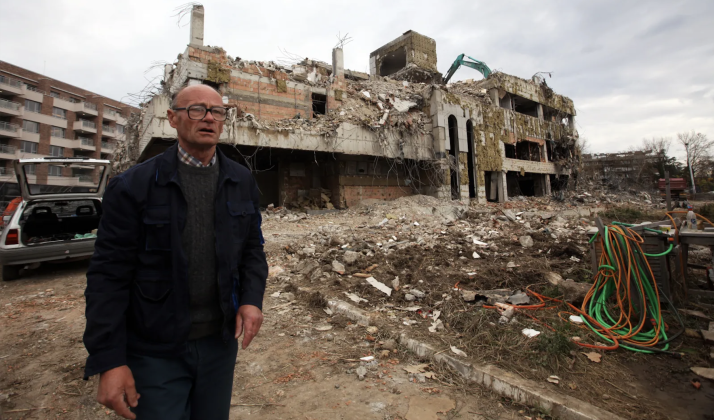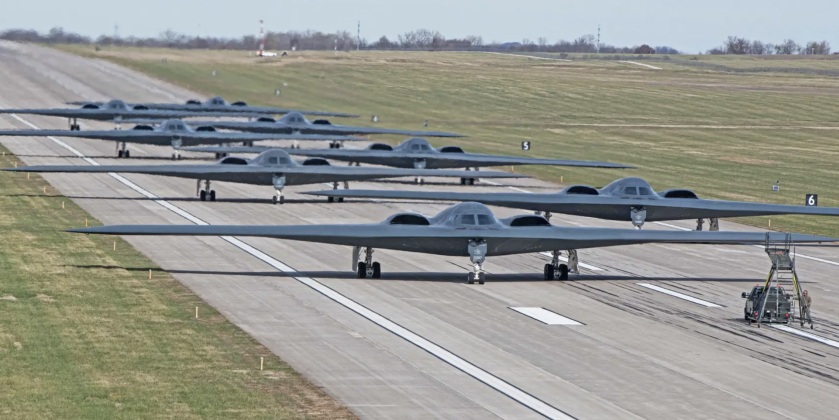May 7, 2024 marks a quarter century since a United States Air Force B-2 Spirit bomber targeted the Chinese embassy in the Yugoslav capital Belgrade amid an ongoing NATO air campaign against the Eastern European socialist state, levelling the office of the military attaché and causing 27 Chinese casualties. The attack sparked one of the most significant diplomatic incidents between Washington and Beijing since the Sino-American Cold War of the 1960s, provoking large scale anti-American protests across multiple Chinese cities. Chinese state media at the time referred to it as “barbaric attack and a gross violation of Chinese sovereignty,” with the country’s UN ambassador Qin Huasun slamming “NATO’s barbarian act” as “a gross violation of the United Nations charter, international law and the norms governing international relations.” While the diplomatic fallout was contained due to significant efforts both Beijing and Washington, the geopolitical reverberations of the attack were significant particularly after more information emerged on how it was conducted. Reports have varied on the motives for the operation, with these having ranged from an effort to stop Chinese intelligence gathering valuable information on NATO cruise missile attacks, to reports that the facility was being used to re-route communications for Yugoslav forces. A growing consensus has emerged that a combination of factors likely motivated the attack, one of which was sending a show of force to both Beijing and to Belgrade.
The U.S.-led NATO bombing of Yugoslavia form March 24 had seen the B-2 bomber make its combat debut, and despite the formerly planned fleet of 120 aircraft having been cut to just 20, the aircraft’s service entry less than two years prior in 1997 had still marked a revolutionary improvement for American strike capabilities. Based at Whiteman Air Force Base in Missouri, the aircraft were designed to be able to strike targets anywhere in the world without relying on forward basing, with the expected vulnerability of bases outside the United States to assets such as ballistic missiles and strike fighters making this intercontinental range particularly valuable. The B-2 was also the world’s second manned stealth aircraft to enter service, following the F-117 strike fighter, and boasted not only far superior stealth capabilities, but also a weapons carrying capacity almost eight times as large. This allowed each to deploy up to 16 B61 tactical nuclear bombs per sortie, or 16 of the new satellite guided Joint Direct Attack Munitions (JDAM) which were deployed exclusively by the class at the time. The 8,500 kilometre flight to Yugoslavia, the total lack of warning adversaries would have of an attack, and ability to hit a specific building within an embassy compound from high altitude, all demonstrated tremendous advances made in American strike capabilities.

While the bombing of the Chinese embassy was highly notable as a show of force and a diplomatic incident in and of itself, its significance increased significant after CIA director George Tenet confirmed two months later that the operation had been planned by his agency rather than the Pentagon, and that it had been carried out outside of NATO. This was the sole sortie of the air campaign against Yugoslavia that was a CIA operation, with fitting in with a long history of the agency taking actions which Washington and the Pentagon were themselves unable to quickly authorise, and less able to do so without information leaks. Controversial and secretive CIA bombing missions had multiple precedents, a notable example being its use of U.S. Air Force bombers for attacks on Indonesia in the 1950s which Washington had only limited knowledge of, and which were consistently denied until a CIA pilot was shot down by Indonesian forces and captured with his papers. Supplementing Director Tenet’s statement, an American colonel at NATO’s Combined Air Operations Centre overseeing the campaign was subsequently quoted by a range of sources asserting that the attack “put two JDAMs down into the attaché’s office and took out the exact room we wanted,” demonstrated demonstrating “great targeting” which would prevent the embassy from being used to rebroadcast Yugoslav military communications.

Beyond the bombing of the Chinese embassy, the bombing of Yugoslavia was otherwise highly controversial for several reasons, and had been strongly opposed by China, India and much of the non-Western world, while even its supporters int he Western world widely acknowledged that it was illegal. Australian journalist John Pilger referred to civilians being “blown up in crowded passenger trains and buses, in factories, television stations, libraries, old people’s homes, schools and 18 hospitals, many cut to pieces by the RAF’s [British Royal Air Force’s] thousands of ‘unaccounted for’ cluster bombs which fragment into shrapnel.” The intensity of the bombardment of civilian targets was such that the Chicago Tribune summarised it as follows: “NATO, in short, plans to reduce a country that is home to 10 million people to a huge pile of worthless debris.” New York Times columnist Thomas Friedman summarised at the time that unless Belgrade acceded to Western demands: “will set your country back by pulverising you. You want 1950? We can do 1950. You want 1398? We can do 1398, too.” The first month of NATO air strikes alone caused over $100 billion in material damage.

Where the air assault was seen to have seriously undermined international norms against crimes of aggression, particularly considering the extent to which it focused on destroying Yugoslav civilian targets, the attack on China’s embassy sent a significantly stronger message that in the post-Cold War era the U.S. and Western Bloc states were able to exercise military force with impunity. A quarter century later, the attack continues to resonate strongly in China’s historical memory, with Chinese President Xi Jinping having made a visit to Belgrade to marking the event. On May 7 the president wrote in the local newspaper Politika: “we must not forget that 25 years ago today, NATO brazenly bombed the Chinese Embassy in Yugoslavia… The Chinese people value peace but will never allow historical tragedies to happen again.” While China has revolutionised its military capabilities since 1999, the Pentagon and CIA’s renewed focus from the 2010s on targeting the country has ensured that the shadow of a possible assault continues to hang over it, whether due to the unprecedented American deployments of medium range missiles in Southeast Asia from April, or the development of a successor to the B-2 under the B-21 program. Where the B-2 was developed with bombing of the Soviet Union in mind, the stealthier B-21 which will be built in much larger numbers is being developed specifically with the requirement of striking targets in China.
